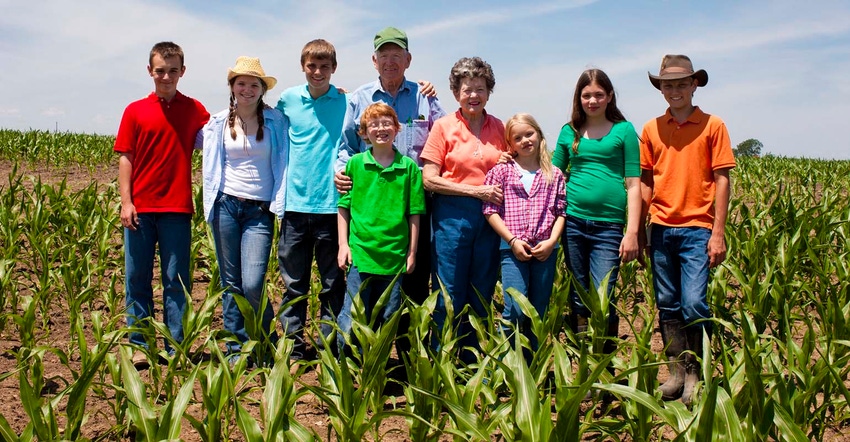
We often assume that those that work together every day really don’t need to sit down and discuss things such as the farm culture, the farm vision or strategic plan. I frequently hear a variation of “We’re family, we’re all on the same page.” If that’s true, then why do family farms fray or splinter over unresolved issues that boil over?
Often it is our culture that drives our actions - both good and bad.
Farm culture is hard to put a finger on. Each farm has its own culture, built up over the years and based on a history of working together, traditions, and shared values. Family farm culture is the action around the same set of beliefs and assumptions. When people share the same culture they are more apt to think and act the same way.
When a family farm has conflict, in-laws are often fingered as troublemakers. “They don’t understand farming” or “This is just how we do it around here” are some of the refrains I hear. Since in-laws don’t automatically “get it” they are sometimes labeled as ‘the problem.’
The root of the problem may not be anyone’s fault but rather the dilution of your family's culture by time and genetics.
Culture changes with generations
Let’s take an example of a farm over generations. When the farm started, there was no culture because there were no traditions, shared values or history. They hadn’t occurred yet. When children came (2nd generation) they shared all the same genetics from their parent but were still different from each other.
When each of the second generation married, they each started creating their own family culture with their own spouses and children. They worked together, played together and sometimes argued like siblings do. They created their own history of growing up together and built their own culture.
Meanwhile, their cousins were doing the same thing down the road.
By the time the third generation marries they have less genetically in common with their cousins and even less of a shared family history.
It is usually around the third generation that the original family culture begins to slip. If the family culture and core values of the farm are not reaffirmed and strengthened with each generation, the odds of family farm conflict increases. It also increases the odds the family farm vision will become murky as each person is operating under a different set of genetics, values, and assumptions.
Is there a way to bring the in-laws, cousins, and everyone else together around a common set of values, beliefs, and culture?
The first step is to not assume your culture doesn’t need to be discussed and reaffirmed with each generation. It does. It does because without a solid understanding of your history, values, and culture, it is difficult to craft a common vision for the farm. How?
Have a family meeting and discuss the family farm history. What traits and characteristics were important to the success of the farm? How were these traits applied to make the farm successful? Tell the stories.
Brainstorm what traits and characteristics will be necessary future farmers to possess.
Talk about what is possible if everyone, including employees, are all operating under the same set of beliefs and actions, i.e. the same culture.
Create a vision for the farm based on the same values, beliefs, and assumptions.
Bring the vision to life with a strategic plan.
Ensure your culture stays strong by only hiring family members and employees that fit with your culture.
As goes the farm culture, so goes the farm. Build up the culture, those ties that bind, before attempting to transition the farm or take it to the next level in size. One more thing: spend time together as one big extended family and build fond memories for future generations to recall as they discuss their family farm culture, values, and history. Those ties that bind will get your family through thick and thin.
The opinions of the author are not necessarily those of Farm Futures or Farm Progress.
Tim Schaefer founded Encore Consultants to provide specialized advising and coaching to farm families and agribusiness at the crossroads of change. With over 20 years of experience advising farmers, Tim was an early pioneer of peer advisory groups for agriculture as a way for successful farmers to gain knowledge, ideas and skills from each other in a non-competitive environment. Tim can be reached at [email protected].
About the Author(s)
You May Also Like






